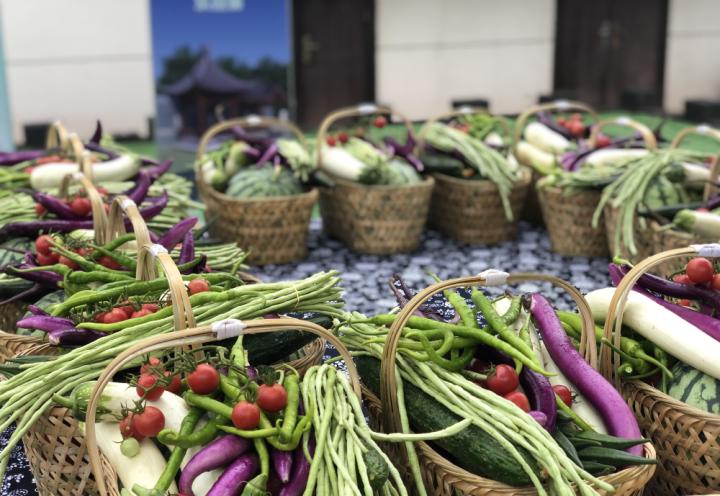The Paper's chief reporter Ge Rongjin
Watermelon, melon, cucumber, eggplant, beans... From sowing seedlings to fruit and vegetable ripening, it takes exactly one semester. On June 22, the fruit and vegetable garden in Tangya Central School in Jindong District, Jinhua City, Zhejiang Province, on more than 3 acres, ushered in the first harvest festival, which was also the final answer sheet of the school's labor class.

"Today's students usually lack labor education, and by allowing students to participate in fruit and vegetable planting throughout the process, they can deepen their understanding of labor, so as to develop good labor habits and qualities." It turns out that students are still very responsible, and after school every day, students will spontaneously go to the responsibility field to weed, catch insects, and observe the growth of vegetables and fruits. In addition, the fruit and vegetable garden has also become an on-site teaching base for art classes and science classes. On June 23, Liu Jianfeng, principal of Tangya Central School, told The Paper (www.thepaper.cn).
Tangya Central School is located in the suburbs of Jinhua City, after the opening of the school last year, the school re-planned a 3-acre, overgrown soil slope in the east corner of the campus for students to grow a variety of vegetables, melons and fruits of labor practice base.
The fruit and vegetable garden of more than 3 acres was divided into 18 pieces, which were claimed by a total of 18 classes in the school's primary school and junior high school. There are more than 20 kinds of vegetables and fruits planted in the fruit and vegetable garden, and there is a sign at the entrance of each vegetable field, which not only indicates the names of the vegetables and fruits planted, but also the species of the genus of the family Phylloscopidae.
Liu Jianfeng told the surging news that the school specially opened a labor class for this purpose, allowing students to participate in the cultivation of vegetables, melons and fruits independently. Not only do students work in fruit and vegetable gardens during labor classes, but they also require students to pay attention to crop growth by observing, recording, analyzing, painting, photographing, and so on. At the same time, experts in planting will be invited to the school from time to time to guide students in scientific planting.
Since June, vegetables and fruits have been ripening. On June 22, near the end of the term, the school held its first harvest festival, and the students picked watermelons, melons, cucumbers, peppers, tomatoes, eggplants... More than twenty kinds of fruits and vegetables were harvested in a big pile. In the joy of the harvest, they handed over the perfect answer to their labor. The fruits and vegetables picked were sent to the school canteen, and the teachers and students added a "small dish" for free.
Liu Jianfeng said that the school wants to open up a new area next to the fruit and vegetable garden to try soilless aerosol cultivation technology. I hope that in addition to traditional agriculture, students can also feel the charm of new agriculture. "At present, experts from Jinhua Institute of Education on soilless aerosol cultivation technology have come to the school 4 times to investigate, and they can be transformed during the summer vacation. It is hoped that students can appreciate the charm of science and technology, understand that through learning can achieve unlimited possibilities, thereby inspiring students' innovative spirit. ”
Editor-in-Charge: Xie Chunlei
Proofreader: Yijia Xu